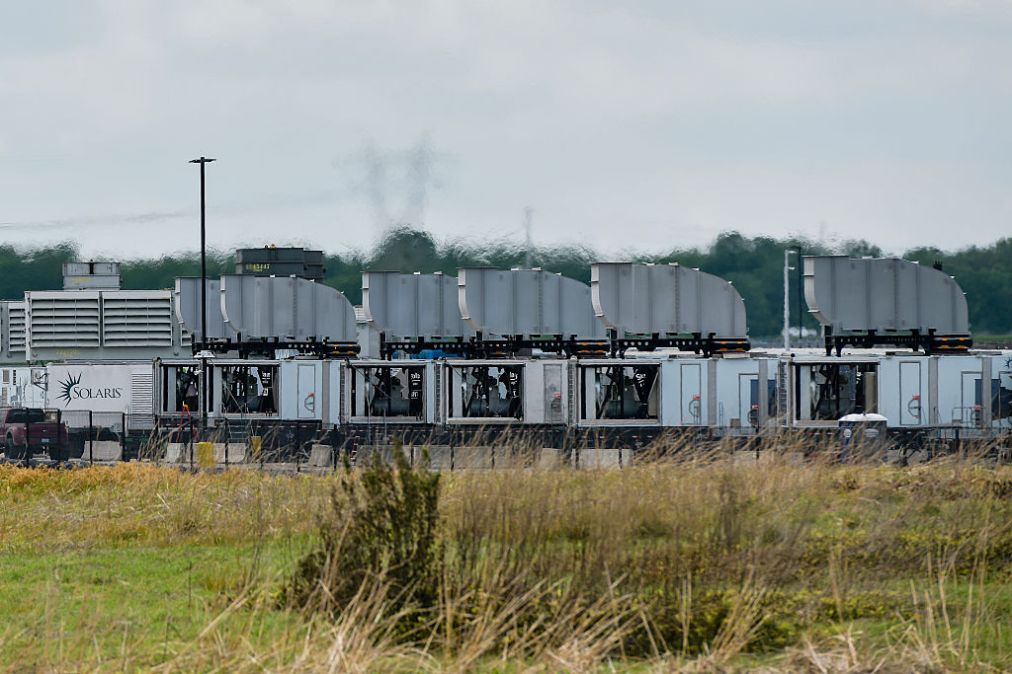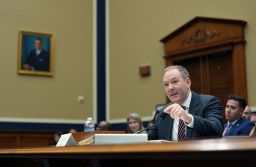Lawmakers eye liquid cooling tech to solve AI data center problems

With energy demand to power artificial intelligence data centers surging — and utility prices soaring along with it — a bipartisan, bicameral group of lawmakers are looking to liquid cooling technology as a solution to that dual problem.
The Liquid Cooling for AI Act from Sens. Chris Coons, D-Del., and Dave McCormick, R-Pa., would direct the U.S. comptroller general to launch a tech assessment into liquid cooling systems for AI compute clusters and high-performance computing facilities.
A press release that accompanied the bill’s introduction last week said the legislation was written to ensure the country’s AI infrastructure is cemented as the “most efficient, resilient, secure, and advanced in the world.” Liquid cooling technologies, the lawmakers believe, should help the country balance the need for more advanced chips to support data centers with reasonable management of energy consumption and corresponding costs.
“Leading the world in AI innovation shouldn’t have to mean skyrocketing energy bills for American families or giving up ground in the fight against climate change,” Coons said in a statement. “This bipartisan bill will encourage the development of new technologies that keep American businesses and our military ahead in the AI race, promoting innovation and growing our economy while keeping our nation secure and lowering costs.”
McCormick added: “As our nation pushes to win the global AI race, we must ensure we use the most advanced technologies available, and that includes innovative cooling systems capable of supporting advanced chips. This legislation is a step towards easing pressure on utilities and customers, promoting energy efficiency in AI infrastructure, and leveraging market-driven technologies to boost U.S. computing capacity.”
The buildout of AI data centers across the country has resulted in skyrocketing energy demand paired with huge jumps in energy bills. The Trump White House’s AI Action Plan emphasized the importance of expanded energy capacity via streamlined permitting and the slashing of environmental regulations. And it teased the possibility of making federal lands “available for data center construction and the construction of power generation infrastructure for those data centers.”
Liquid cooling technologies were not mentioned in the plan, however, even though the lawmakers note in their press release that the country is staring at “unprecedented expansion in data center energy usage, primarily driven by the rapid growth of artificial intelligence processes and operations.” They pointed specifically to a 2024 report from the Lawrence Berkeley National Laboratory that found that data centers consumed 4.4% of U.S. electricity last year, up from 1.9% in 2018. The national lab said that figure could jump to 12.8% by 2028.
With that in mind, the bill would require the Government Accountability Office to deliver an R&D assessment on the “needs and conditions” that impact liquid cooling utilization in data centers. The Department of Energy would then evaluate the watchdog’s findings and write a report for Congress with recommendations on liquid cooling and heat reuse.
The legislation also calls for the establishment of a liquid cooling advocacy organization, made up of industry experts who will team with federal agencies on creating governmentwide guidelines for liquid cooling in AI facilities.
The bill counts Sens. Adam Schiff, D-Calif., and Ted Budd, R-N.C., as co-sponsors, and companion legislation in the House is backed by Reps. Jay Obernolte, R-Calif., and Josh Gottheimer, D-N.J. The press release touts endorsements from a range of private and public-sector partners, including the American Chemistry Council, the University of Delaware Office of Research, the AI Supply Chain Alliance, Cool Filtration, Schneider Electric and more.
“With the dramatic growth of AI and the accompanying increase in electricity demand from data centers, we must ensure we are using the most efficient cooling technologies and protecting consumers from price hikes,” Schiff said in a statement. “This bipartisan legislation will help advance liquid cooling systems — a critical and sustainable method of cooling that improves energy efficiency and thermal performance, while improving affordability for consumers.”
Said Budd: “The United States must win the AI Race against China, but it cannot do so without access to abundant and affordable energy. Liquid cooling of IT equipment at data centers and other advancements can ease electrical grid strain and help lower costs for consumers.”






